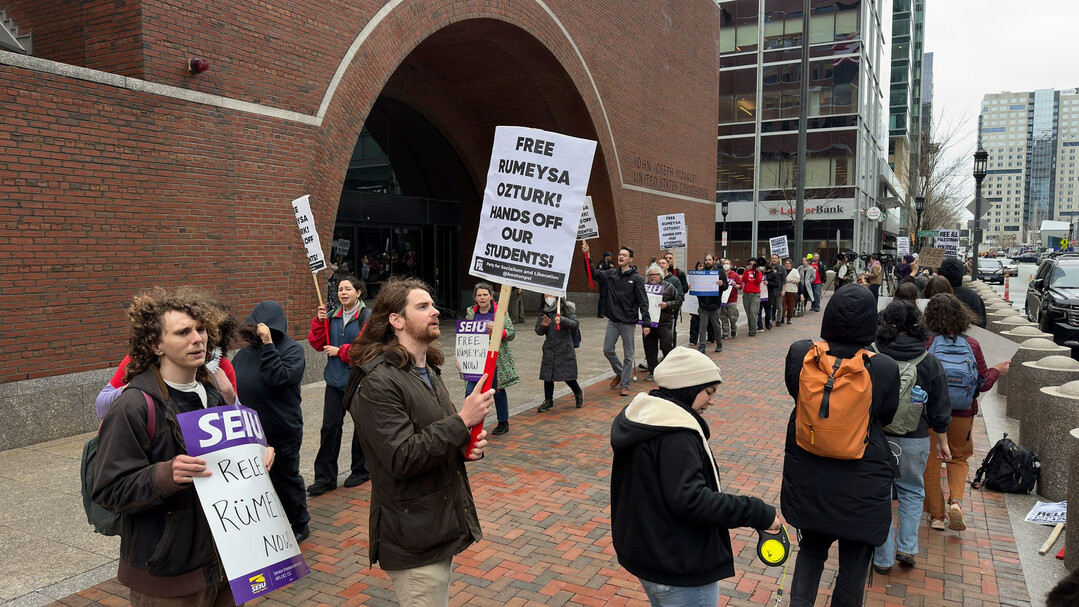
Several universities in Florida are facing controversy after it was revealed that they have entered into agreements with the federal Immigration and Customs Enforcement (ICE) to cooperate with the Trump administration's intensified immigration enforcement policies. This development is seen as part of a broader move by the state government to support the Trump administration's crackdown on immigration.
The University of Florida officially confirmed its 287(g) agreement with ICE in an interview with CNN on April 11th (local time). The 287(g) agreement is a program under which ICE, a component of the Department of Homeland Security (DHS), delegates specific immigration enforcement authority, such as the execution of arrest warrants for individuals suspected of immigration violations, to state and local law enforcement agencies.
The signing of these agreements comes amidst the Trump administration's continued targeting of foreign nationals enrolled in prestigious American universities. Recent incidents, such as the arrest of Mahmoud Khalil following pro-Palestinian protests at Columbia University on suspicion of supporting terrorist organizations, highlight this trend.
In this context, CNN reported that over 525 student, faculty, and researcher visas have been revoked at 88 universities this year, with an increasing number of cases involving student visa cancellations and deportation threats for minor past offenses. The University of Florida's spokesperson told CNN that four of its students' visas have already been revoked.
These circumstances have led to growing concerns and opposition on the University of Florida campus regarding the increased immigration enforcement. According to WCJB, a CNN affiliate, protests erupted on campus on April 9th to object to the deportation of a Colombian student. Protest participants conveyed that international students are feeling insecure following the student's deportation.
In February, Florida Governor Ron DeSantis issued a statement regarding similar agreements entered into by other law enforcement agencies within the state, noting that the agreements allow local police to question individuals about their immigration status and "execute warrants for immigration violations." The governor's office referred inquiries on this matter to the Florida Board of Governors, which oversees the state university system.
Board of Governors spokesperson Cassandra Edwards stated in an email, "Several university police departments within the State University System of Florida cooperate with U.S. Immigration and Customs Enforcement." She added, "Our university police departments are always encouraged to cooperate with other law enforcement agencies to enforce state and federal law."
The University of South Florida also confirmed its agreement with ICE to CNN. University spokesperson Michael Lavelle explained, "All state law enforcement agencies, including the USF Police Department and other state university police departments, were required to enter into agreements with U.S. Immigration and Customs Enforcement per the Governor's directive in February." He further stated, "USF regularly cooperates with local, state, and federal law enforcement agencies to maintain the safety of our university community and the security of our campuses."
According to WFTV, a CNN affiliate, the University of Central Florida has also entered into an agreement with ICE. CNN has reportedly contacted Florida International University and Florida Atlantic University to confirm whether their campus police have also entered into such agreements but has not yet received a response.
According to DHS, there are currently 200 state, county, and municipal law enforcement agencies across Florida with 287(g) agreements with ICE, and over 40 additional agencies are in the process of establishing such agreements.
Human Rights Groups and Student Community Raise Strong Concerns and Criticism Over Universities' Cooperation with ICE
The increasing number of Florida universities entering into cooperation agreements with ICE has sparked strong concerns and criticism from human rights groups and the student community. They argue that by directly collaborating with immigration authorities' enforcement activities, universities risk increasing racial profiling and unjust arrests and deportations on campus. In particular, concerns are being raised about the potential intimidation of the international student community, who are already feeling insecure due to visa issues, and the infringement on academic and exchange activities within the campus.
Human rights organizations, including the American Civil Liberties Union (ACLU), have long criticized 287(g) agreements, arguing that they divert local law enforcement agencies from their primary duties to enforce immigration laws, thereby undermining community trust and potentially leading to illegal discrimination and human rights violations. Furthermore, there is criticism that universities, by abandoning their role as educational institutions and aligning themselves with the federal government's coercive immigration policies, are acting inappropriately.
Student groups are worried that despite the campus needing to be a safe and inclusive space for all students, the universities' decision to cooperate with ICE will instead create an atmosphere of anxiety and foster distrust among students. They are urging universities to strengthen their role in protecting and supporting international students and to immediately withdraw from the cooperation agreements with ICE.
The controversy surrounding Florida universities' ICE cooperation agreements raises significant questions about the stance that academic institutions should take amidst the Trump administration's intensified immigration enforcement. The choices universities make in balancing their values as educational institutions and their duty to protect students with cooperating in the enforcement of federal government policies will be closely watched.
[Copyright (c) Global Economic Times. All Rights Reserved.]






























